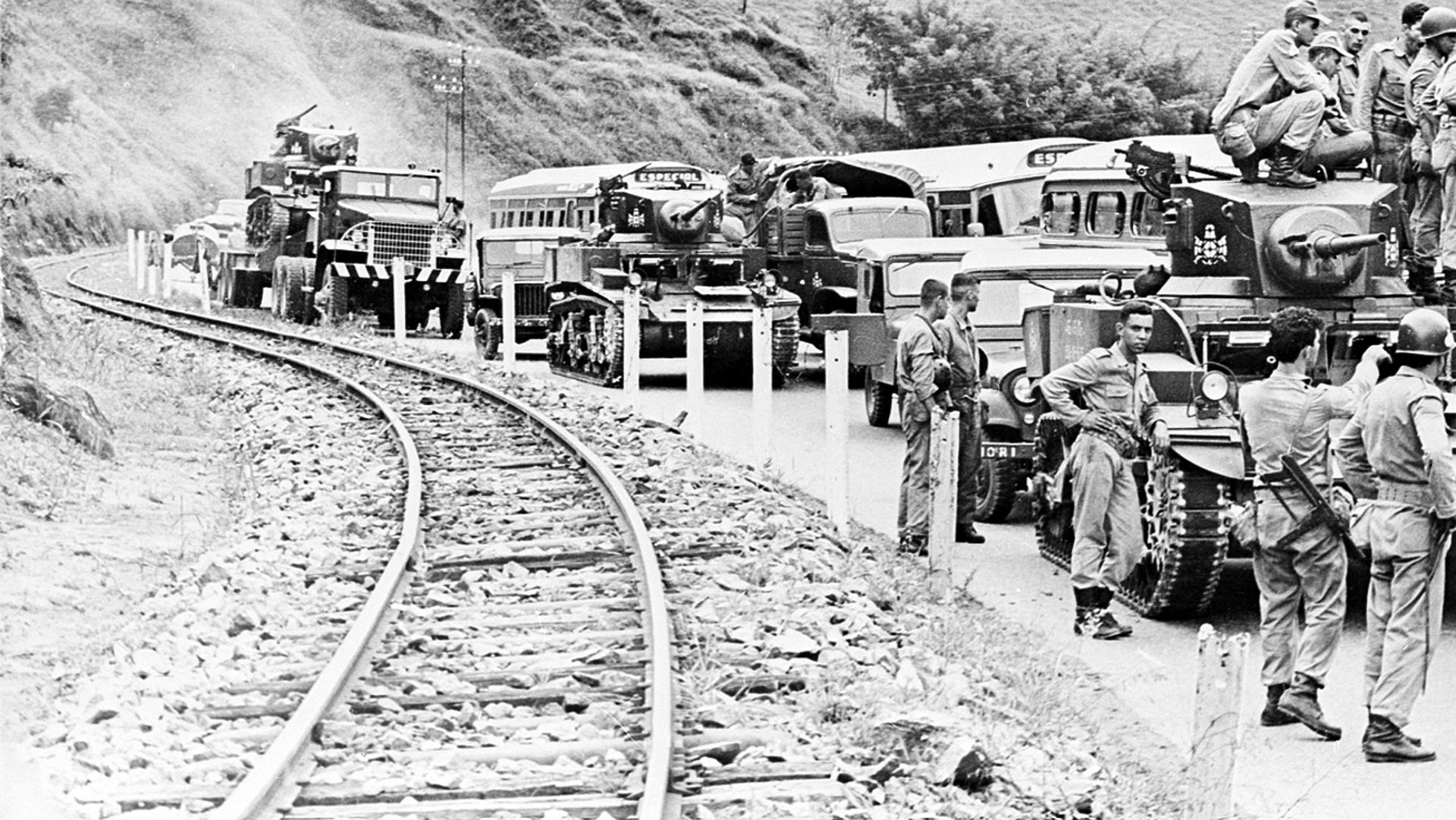On March 31, hundreds of people in the city of São Paulo, Brazil, walked to a former government detention and torture center in, in an event known as the “Walk of Silence.”
They were there to remember the anniversary of the 1964 coup and victims of the dictatorship, with many carrying large, black-and-white pictures of the victims.
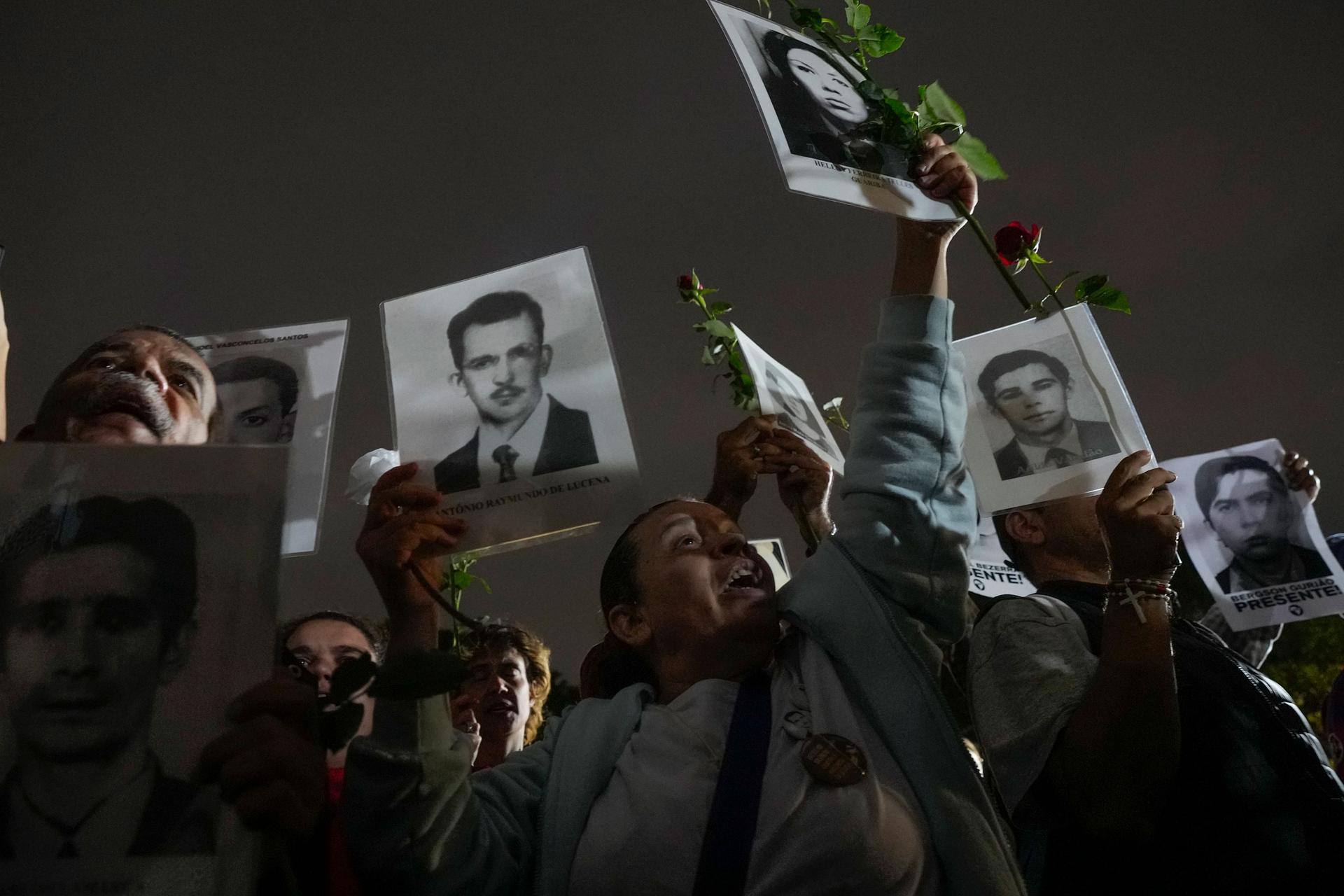
In a video on YouTube, Angela Mendes de Almeida speaks to the crowd. “My husband was tortured and killed here,” she said. “It’s really hard for me. We have the obligation of continuing to demand punishment for the generals.”
During the military regime, hundreds were killed and disappeared. Thousands were detained and tortured.
Today, retiree Gracinda Gra has long gray hair and wears glasses. She was 6 years old on the day of the coup.
“The police came knocking at our door in São Paulo,” she said. “My dad was in a union. He went to jail. He was tortured. Just to remember it, gives me the chills.”
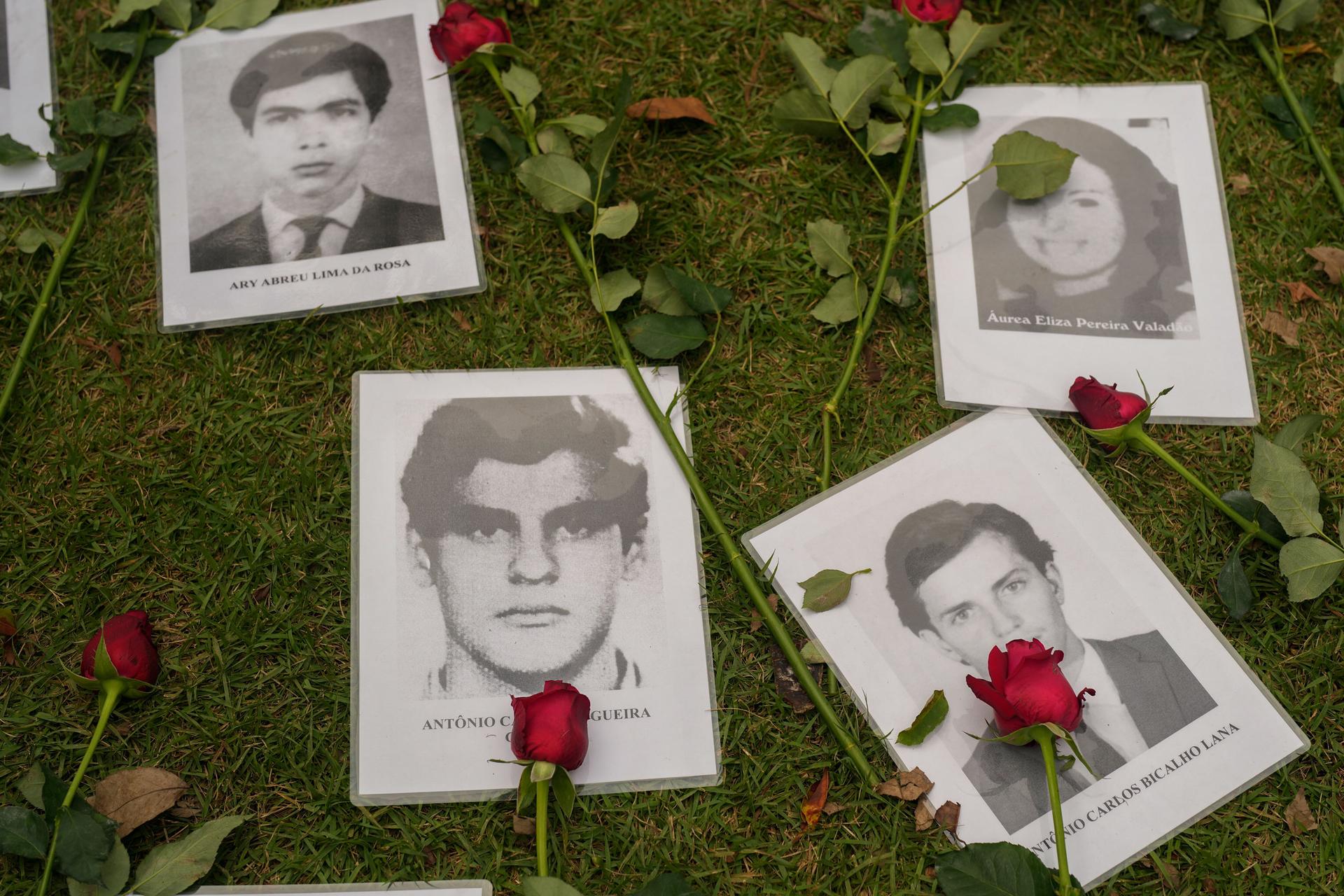
On March 31, 1964, tanks rolled on the streets of Brasilia to overthrow President João Goulart, a member of Brazil’s Labor Party. He’d been pushing redistributive policies including tax reform, moderate agrarian reform and literacy campaigns.
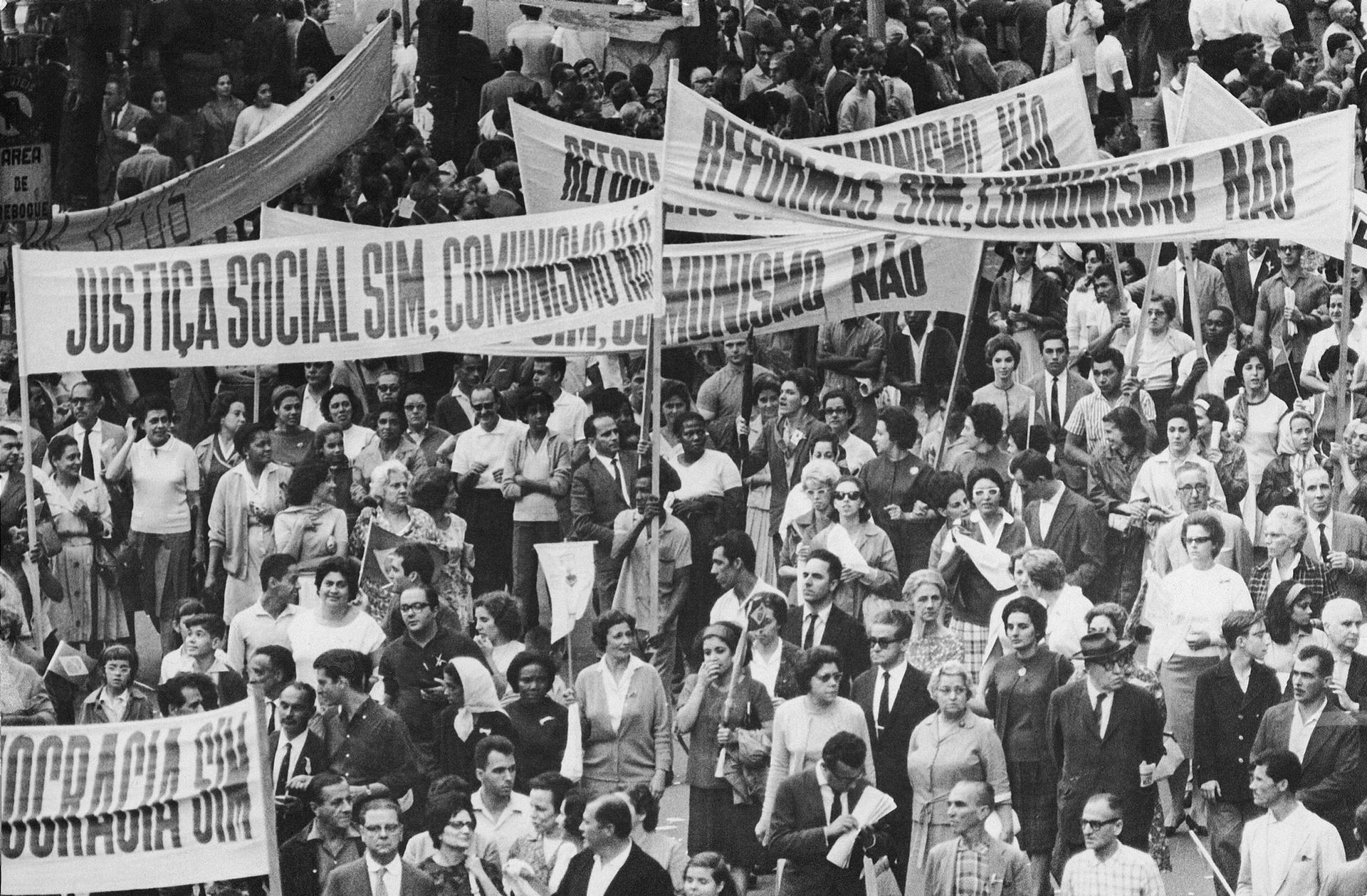
The generals said he was a communist and had to go. They called the coup “a revolution.”
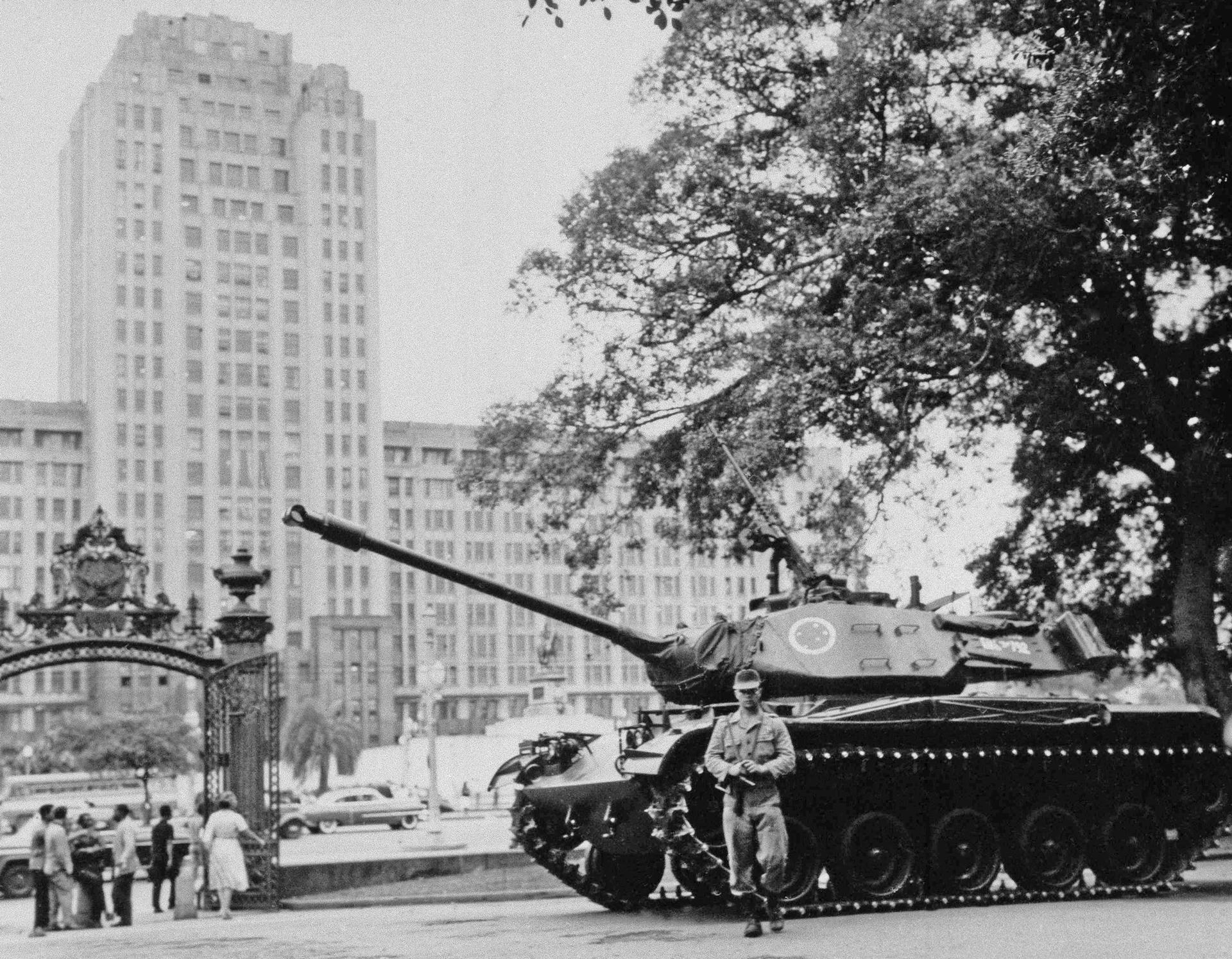
That’s still a widely held belief among the military and those on the political right in Brazil that the coup was an act that saved the country.
In a low-budget video posted online a few years before winning the presidency in 2019, then-Congressman Jair Bolsonaro stood in front of Congress, shooting off fireworks.
“March 31, 1964, the date of the second independence of Brazil,” he says in the video. “Congratulations to the military. In 1964, you stopped Brazil from becoming a satellite of the Soviet Union. We owe our freedom and democracy to this.”
While in power as president, Bolsonaro encouraged coup commemorations at military barracks and called for his supporters to celebrate.
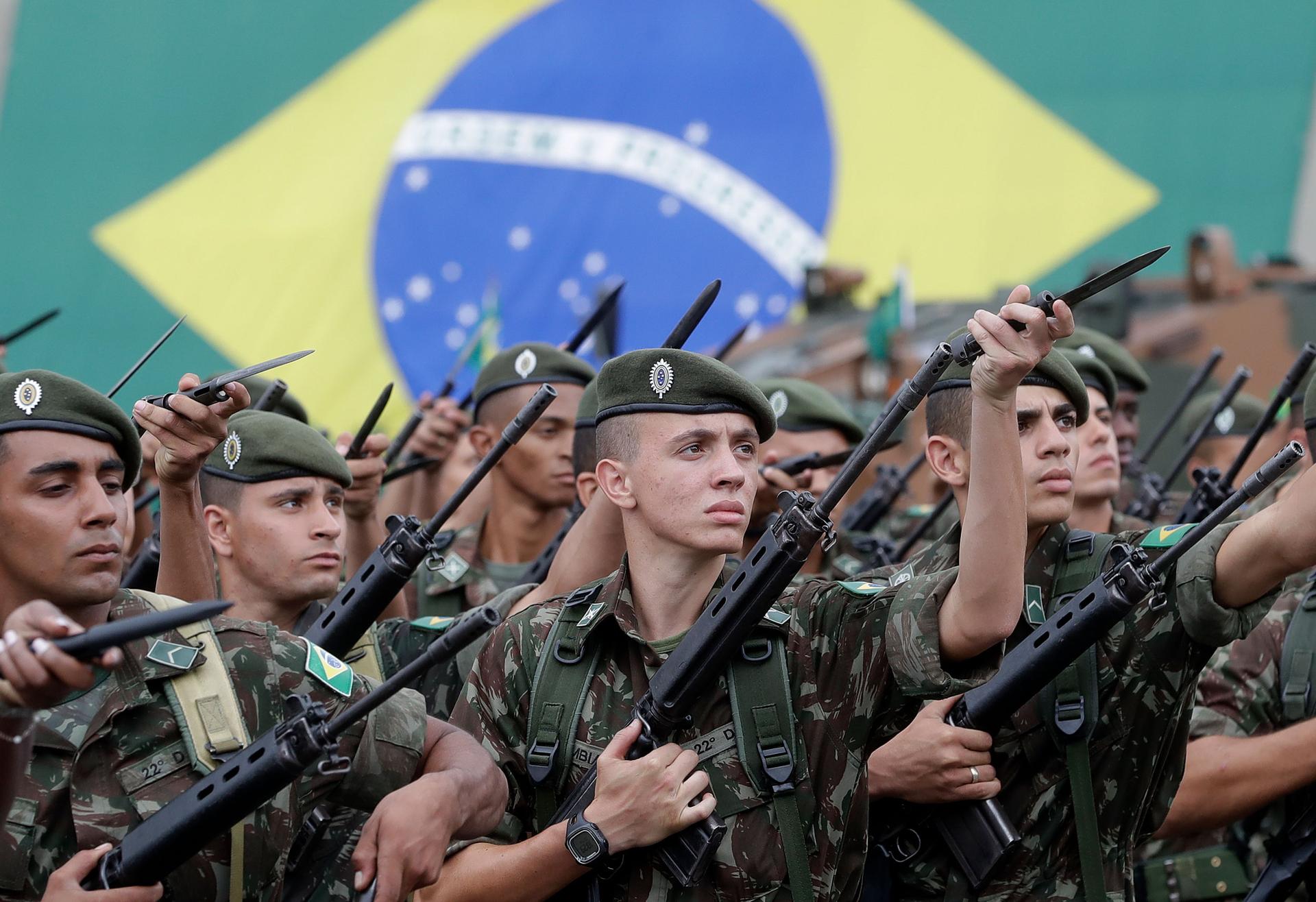
For Brazil, the pendulum has swung back and forth over how the past is remembered.
“Brazil had a Truth Commission, which had identified the politically motivated murders of a variety of people during the dictatorship, particularly leftist activists and even a couple of leftist politicians. And there was a pretty widespread consensus that the dictatorship was something bad,” said Bryan Pitts, assistant director of the UCLA Latin American Institute and the author of “Until the Storm Passes: Politicians, Democracy, and the Demise of Brazil’s Military Dictatorship.
“Then something happened called Jair Bolsonaro,” he said.
Musician Neko Visentini elaborated: “Since Bolsonaro came to power, the far-right came out in full force And they are still very strong. Very strong. And it’s a tide that president Lula is having to confront.”
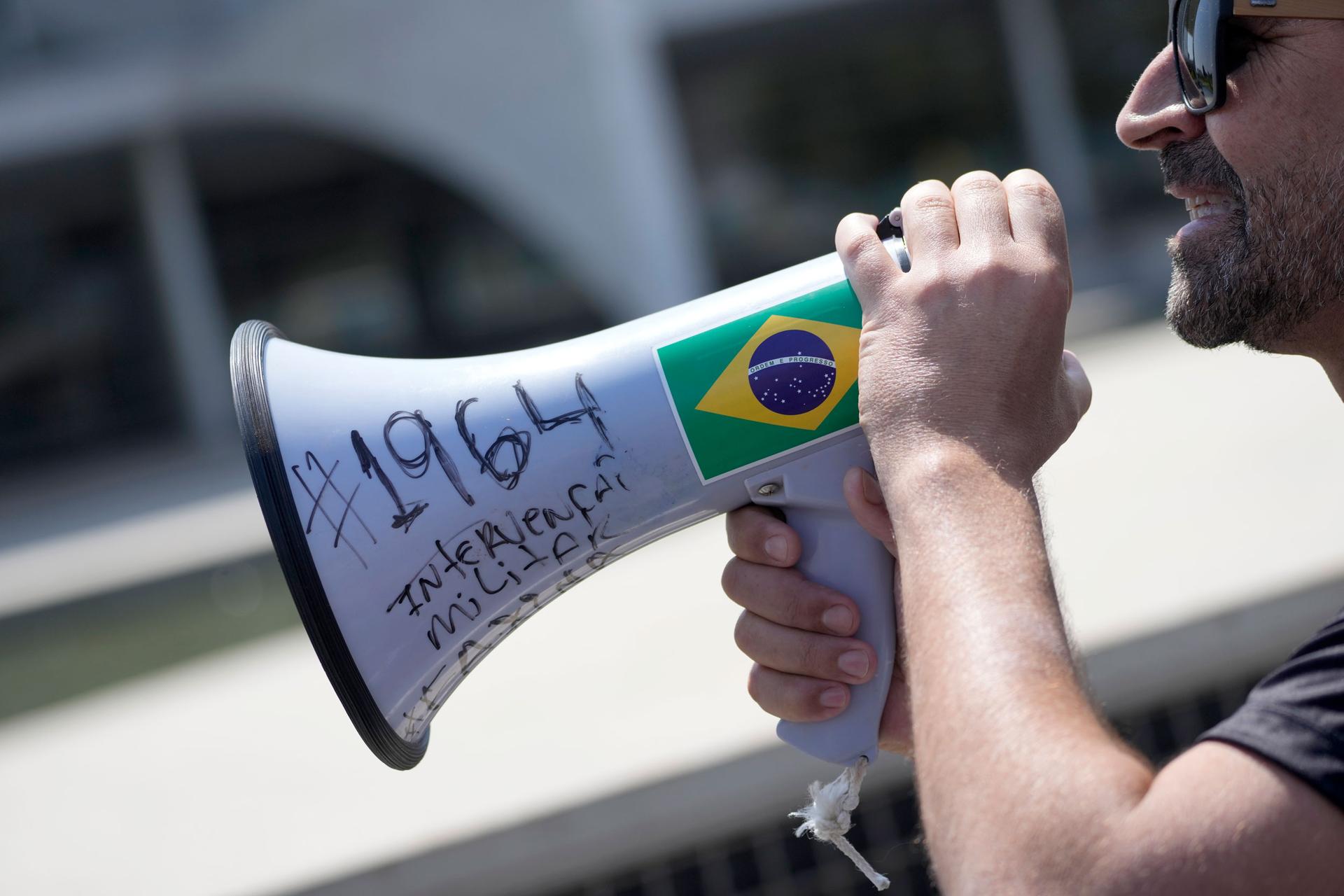
But President Luiz Inácio Lula da Silva is choosing his battles.
“I don’t want to dwell on the past,” he answered when questioned about the 60th anniversary of the coup last week. “I’m trying to lift this country forward.”
Lula defeated Bolsonaro in elections in late 2022. But Bolsonaro, like former US President Donald Trump, spread a narrative that the elections were rigged against him. New revelations in recent weeks show Bolsonaro went to great lengths to stay in power.
“So, what we’re seeing through the revelations shown in the investigations is, one, that Bolsonaro unquestionably tried to orchestrate a coup inviting openly the heads of the three branches of the armed forces in Brazil,” said Jacob Blanc, a Latin American history professor at McGill University in Quebec.
He said this is a big deal coming out just ahead of the 1964 coup anniversary. On the one hand, it will form a part of the conversations about the 60th anniversary, because the idea of a coup is quite alive and well. On the other hand, he said, so are Brazil’s democratic institutions. They’re working. Lula is in power. And Bolsonaro has been blocked from political office for eight years for spreading lies about the country’s elections.
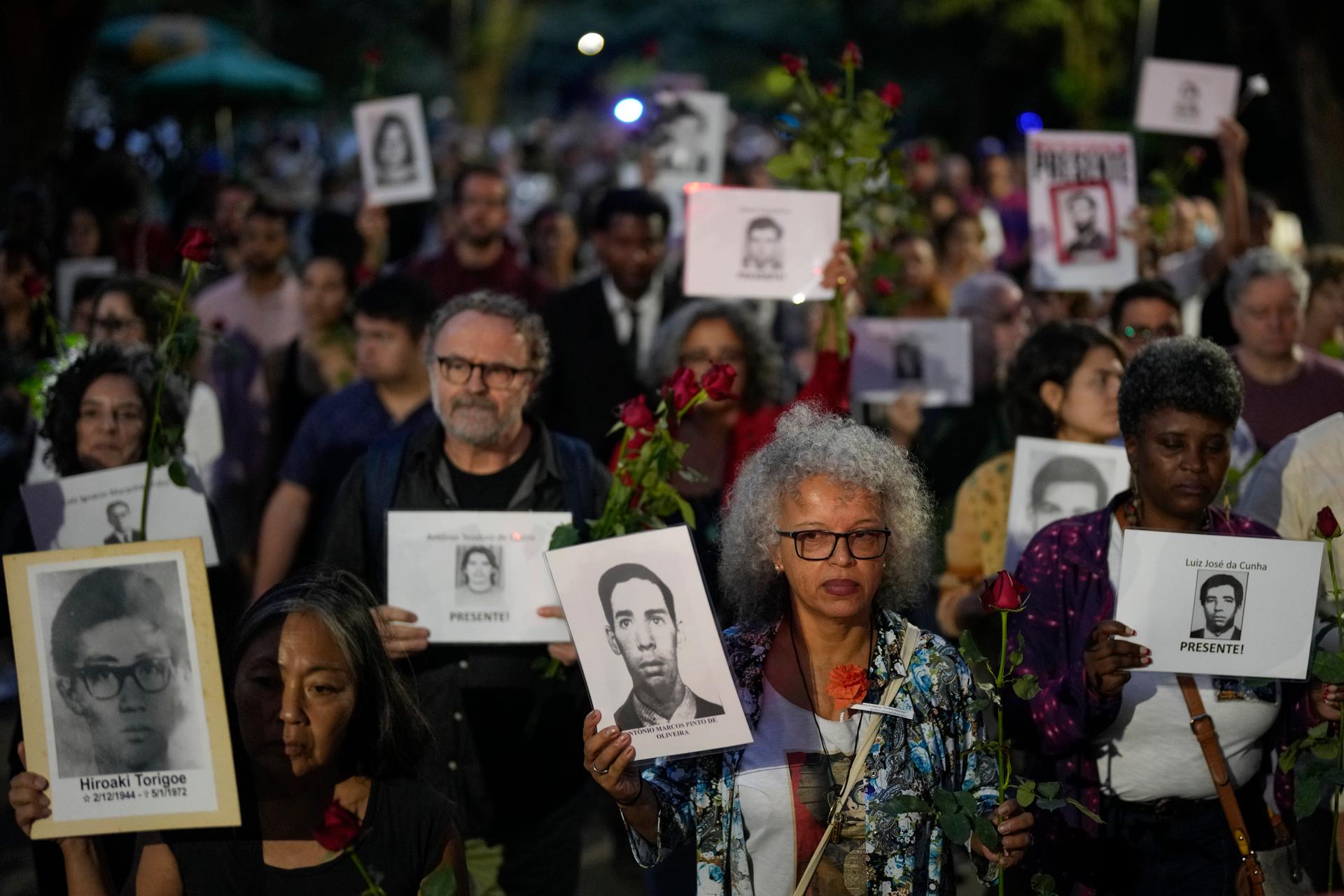
Events remembering the 1964 coup took place last week across Brazil, followed by events to remember the victims. Their main message is more of a demand — that this dark past in the country’s history never returns.
